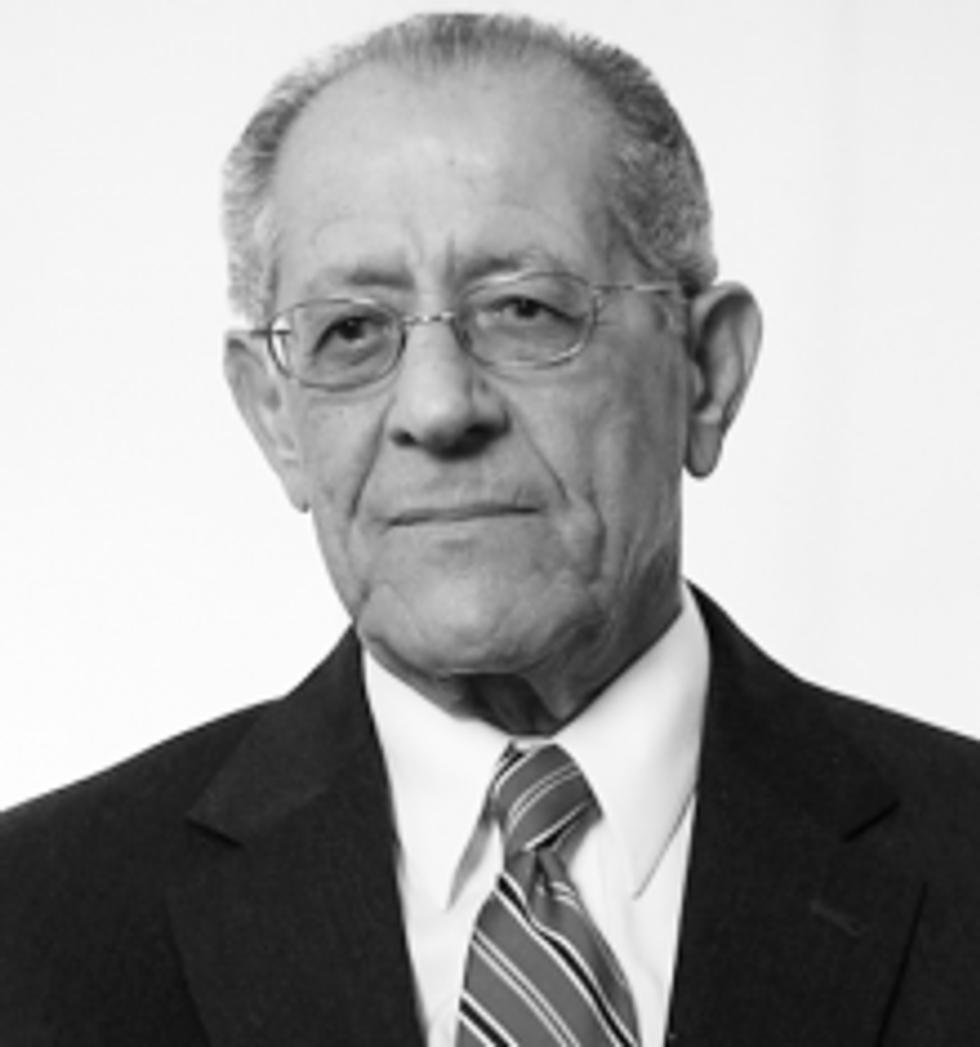The decision by President Donald Trump to officially recognize Jerusalem as Israel’s capital could give the U.S. added leverage to demand difficult concessions from the Israelis, possibly breathing new life into the Israeli-Palestinian peace process. However, it could also render the U.S. an untrusted broker, unable to wrangle necessary concessions from the Palestinian side. Moreover, the move may also break the nascent unified effort between Israel and Arab countries to offset Iran’s destabilizing behavior in the Middle East.
- In a televised statement delivered Wednesday afternoon, Trump recognized Jerusalem as the capital of Israel, stating that “this is a long overdue step to advance the peace process and to work towards a lasting agreement.” While on the campaign trail, Trump had expressed a desire to move the U.S. embassy in Israel from Tel Aviv to Jerusalem, and on Wednesday, Trump said that “while previous presidents have made this a major campaign promise, they failed to deliver. Today, I am delivering.”
- The status of Jerusalem as Israel’s capital was already enshrined into U.S. law pursuant to the 1995 Jerusalem Embassy Act, which also urged the American government to relocate its embassy to Jerusalem. Since the legislation was passed, however, each U.S. president regularly exercised a six-month waiver authority granted by the act, which permitted the President that suspended the recognition of Jerusalem as Israel’s capital as well as the movement of the embassy as a means of protecting “the national security interests of the United States.”
- Jerusalem is a key sticking point in Israeli-Palestinian negotiations. A two-state solution would almost inevitably require the western part of Jerusalem to serve as the capital of Israel while East Jerusalem would represent the capital of a future Palestinian state. Jerusalem is a sacred city for Judaism, Islam and Christianity and is home to holy sites including the Western Wall, the al-Aqsa Mosque and Church of the Holy Sepulchre.
- Israeli Prime Minister Benjamin Netanyahu praised Trump’s decision calling it “courageous and just.”
As expected, the move has drawn harsh reaction from the Palestinian government as well as Arab leaders in the region. Leading up to the announcement, Trump informed Palestinian Authority (PA) President Mahmoud Abbas, Jordan’s King Abdullah, Egypt’s Abdel Fattah el-Sisi and Saudi Arabia’s King Salman, of his impending decision.
- The Palestine Liberation Organization’s chief representative in Washington, Husam Zomlot, said that the formal U.S. recognition of Jerusalem as the capital of Israel would be the “kiss of death” to the two-state solution.
- Hamas issued a statement calling “on the people of Palestine to declare ‘rage day’ on Friday against Israel, protesting the U.S. plan to move its embassy from Tel Aviv to Jerusalem and its recognition of Jerusalem as Israel’s capital.” It also added that “the youth and the Palestinian resistance in the West Bank need to respond with all means available to the U.S. decision that harms our Jerusalem. Jerusalem is a red line and the resistance will not allow any desecration of it.”
- Turkish President President Recep Tayyip Erdoğan warned that the move could result in the severing of “diplomatic relations with Israel.”
- Jordan’s King Abdullah II also voiced concern over the decision saying that it “could fuel terrorism.”
- Protests are already underway at U.S. embassies in Jordan and Turkey, as well as in the West Bank, and the Gaza Strip.
- Reaction from Egypt and the Gulf was muted. Although Saudi’s King Salman and Egypt’s President Abdel Fatah el-Sisi warned that Trump’s decision could stir provocations across the Muslim world, neither leader issued an immediate reaction on Wednesday to Trump’s announcement.
- One key U.S. ally condemned the move. In a statement, British Prime Minister Theresa May said, “We disagree with the U.S. decision to move its embassy to Jerusalem and recognize Jerusalem as the Israeli capital before a final status agreement. We believe it is unhelpful in terms of prospects for peace in the region. The British Embassy to Israel is based in Tel Aviv and we have no plans to move it.”
It has been several years since the Israeli-Palestinian peace process gained any momentum. Both sides have failed to make difficult concessions, and all the while, the Israeli-Palestinian conflict seems to have fallen to the backburner due to the numerous other regional events.
- The roadmap for the Israeli-Palestinian peace process, via a two-state solution, was outlined in 1993 Oslo Accords agreed upon by former Palestinian President Yasser Arafat and former Israeli Prime Minister Yitzhak Rabin.
- Peace efforts appeared to gain momentum at the 2000 Camp David Summit attended by Israeli Prime Minister Ehud Barak and Arafat, but the two sides were unable to reach a deal. In 2008, the peace process appeared to have new life under the guidance of Israeli Prime Minister Ehud Olmert and Palestinian President Mahmoud Abbas, but once again failed.
- A key stumbling block for peace negotiations over the past decade has been the fractured state of Palestinian governance. Hamas assumed control over the Gaza Strip following Israel’s withdrawal from the territory in 2005 and the organization’s victory in the 2006 Palestinian elections. Violent clashes between the Palestinian Authority and Hamas ended with the PA’s ouster from Gaza in 2007. Since then, Palestinian politics have been dominated by two separate governments: the Palestinian Authority (PA) based in the West Bank; and Hamas in the Gaza Strip, which has repeatedly fired rockets at Israel and clashed with Israeli forces.
- On Oct. 12, the PA and Hamas reached an agreement in Cairo, in which Hamas pledged to dissolve its Gaza government, permit the PA to operate in Gaza, enter into talks with PA President Mahmoud Abbas’ Fatah party, and participate in upcoming elections that could eventually lead to the formation of a singular Palestinian government. This agreement was believed to be a step in the right direction for equipping the Palestinian people with a legitimate representative body and authoritative voice for negotiations.
Emile Nakhleh, former member of the CIA's Senior Intelligence Service
“The PA Authority in Ramallah…and Hamas in Gaza have lost much of their legitimacy. The PA is mired in corruption, and Hamas' rule has been inefficient and hapless.”
Although popular consensus has billed Trump’s declaration as another nail in the coffin of the peace process, Trump officials say it could serve to jumpstart a new wave of negotiations and help Trump achieve what he has proclaimed to be the “ultimate deal.”
- By declaring Jerusalem the capital of Israel and granting the Israeli government recognition it has long desired, Trump is now in a position to ask for difficult Israeli concessions on certain issues.
- With another leverage point disappearing for the Palestinians, Trump’s decision could jolt the Palestinian leadership into coming to the negotiating table to ensure that their demands are met.
However, beyond its impacts on the peace process, Trump’s decision could backfire with respect to addressing the most critical threat in the region – Iran. The announcement could strain ties between Israel and its Arab counterparts, namely in the Gulf, who maintain a shared interest in combatting Iran’s regional behavior. Weakening these alliances would ultimately benefit Iran, which has already seen the Gulf Cooperation Council – one of its main regional detractors – crumble over the issue of Qatar.
James Jeffrey, former U.S. Ambassador to Iraq and Turkey
“The key goal in the region is containing Iran. Every action in the region, aside from immediate counterterrorism efforts, needs to be subordinated to this containment goal. Israel and the Arab states are key allies of U.S., and this decision will undercut cooperation between Israel and U.S. on one hand, and Arabs on the other. When a Palestinian problem arises, Arab states typically are pressured by their own pro-Palestinian populations and pan-Arab firebrands to ratchet back cooperation with Israel.”
But the question that looms large over this decision is how it could benefit U.S. policy in the Middle East. Although such a move cements ties with Israel, it may weaken U.S. standing in the eyes of critical Arab partners.
Aaron David Miller, former Senior Advisor for Arab-Israeli Negotiations, U.S. State Department
“The peace process is comatose. The issue here with respect to the embassy isn’t directly related to that; it’s related to the whole issue of American national interests, its credibility and its image. This is that it does not advance American national interests given the potential downsides.”
Bennett Seftel is director of analysis at The Cipher Brief. Follow him on Twitter @BennettSeftel.
















